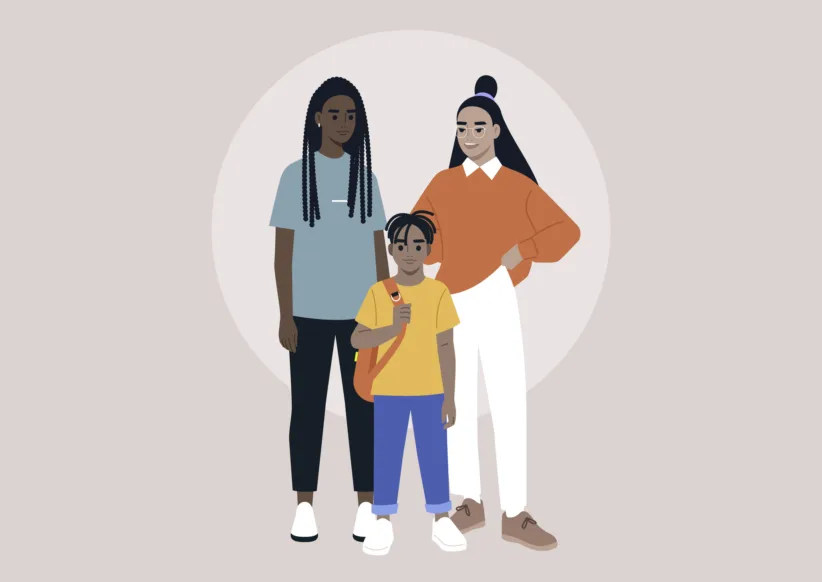Anybody can become disabled.
Did you know that one in five Americans is in some way challenged? That’s more than 56 million people who have special needs or are living with a disability. And New York City — which isn’t very disability-friendly — is home to about one million.
Like everyone else, these people yearn to achieve their potential and lead independent lives despite their limitations. As with all parents, those who have kids with disabilities want to give them every possible opportunity to excel.
New York families must also deal with additional challenges. Most grapple with issues related to healthcare and early intervention services while facing daunting financial woes.
Easterseals is there to advocate for positive change.
For nearly a century, this world-renowned organization has meant hope for millions of Americans. Its mission: redefine disability for the 21st century. Families, as well as veterans, have benefited from Easterseals’ ongoing work and dedication to the communities it serves.
And as concerned voters, folks struggling with a disability definitely have something to say and want to be heard. Easterseals’ President and Chief Executive Officer Randy Rutta recently wrote an open letter to the presidential candidates and other contenders for public office that included statistics that highlighted what topics matter most to those with, and impacted by, disability.
I spoke with Rutta about the 2016 election and what it means for adults and children with special needs.
Tammy Scileppi: Please explain how this election will impact the 56.7 million Americans living with a disability, along with the estimated 62 million eligible voters who have a disabled family member.
The greatest of these issues affecting families with kids living in New York City is healthcare. In a recent study determining the most disability-friendly locations among the 150 most populated cities, New York ranked last in healthcare. High costs of doctor visits, costly insurance premiums, the quality of doctors and nurses and public hospitals, and the percentage of uninsured population all factored into this rating.
TS: What is each presidential candidate’s platform on this topic?
RR: Parents of children with disabilities want to know how the candidates feel about ensuring young kids with disabilities can be included in early education programs, how they will be successful in school, and how they will be able to secure the health services their child needs for his overall well-being. Access to these specific services dictates whether children will have the skills to become independent adults.
As a non-partisan organization, we do not engage in electoral activities. However, Easterseals has been closely watching the policies of each of the presidential candidates. Both of the major candidates have presented policies to make it easier for working families to access early education services. However, the similarities end there. So Easterseals is encouraging all citizens to learn more about the priorities of each candidate and to determine which one will advance policies that increase opportunities for people with disabilities.
TS: What was the outcome of your open letter to the presidential candidates and candidates for public office? Please recap for our New York Parenting families what the letter was about and what are some important statistics related to the state and the city?
RR: People with disabilities will account for approximately one sixth of eligible voters in the 2016 election, totaling 34.6 million people in all. And their political preferences look similar to those without disabilities both in terms of party affiliation and their distribution across the ideological spectrum.
The open letter to presidential candidates was a way for Easterseals to amplify the issues most important to the disability community in this historic election — ensuring the issues they care about most are heard — now, and long after the polls close.
We reached out to our clients and supporters to learn more about what they face day-to-day and what topics need to be addressed to ultimately make change. Healthcare continues to be a top priority — nationally and locally. Of our survey respondents, 68.9 percent identified affordable healthcare as their most important issue. Access to services, early intervention, and assistive technology rounded out the top four most important issues among respondents.
In addition to healthcare, economic well-being continues to be a concern among people with disabilities in New York, with the city ranked as one of the worst economies for people living with disabilities (126 out of 150 most populated cities).
Although voting is a right guaranteed by law to people of all abilities, accessibility challenges still arise at the polls. Easterseals teamed up with the American Association of People with Disabilities and RevUp to create an Election Day checklist for voters with disabilities to ensure everyone’s voice is heard this election season.
TS: Please discuss recent news related to your organization’s stance on healthcare, early intervention services, economic well-being, and kindly share with our readers what New York families with special-needs kids should know or be aware of and what they should be asking doctors and specialists, and advocating for.
RR: I think the most pivotal news for Easterseals in the past month has been Congress’ decision to provide additional funding to address the Zika virus. Children born with microcephaly or adults who contract Guillain-Barre Syndrome as a result of Zika need critical heath and related services. As one of the nation’s foremost providers of early intervention services to young children, Easterseals knows how critical it is to connect these families to developmental services as soon as possible. These services will help a family gain the skills they need to care for their child as well as to provide a child with physical or speech therapy or other services that ensure the child’s health and well-being.
Federal, state, and local governments provide essential support to Easterseals, so we can ultimately make lives better for those facing disability. That is why this election is so important. When issues arise such as Zika that cause difficult outcomes involving disability, we want a candidate that is on our side and recognizes the importance of what we provide — services that families otherwise would not have access to.
New York City families with special-needs children should ultimately be aware of their child’s right to access the same quality of life of others. There are 56.7 million Americans living with disability — nearly one million in New York City alone — proving that disability is not a one-size-fits-all approach. But they don’t have to navigate it alone. We want families living with disability to know there is a community waiting for them at Easterseals.
Tammy Scileppi is a Queens-based freelance writer and journalist, parent, and regular contributor to New York Parenting.





















